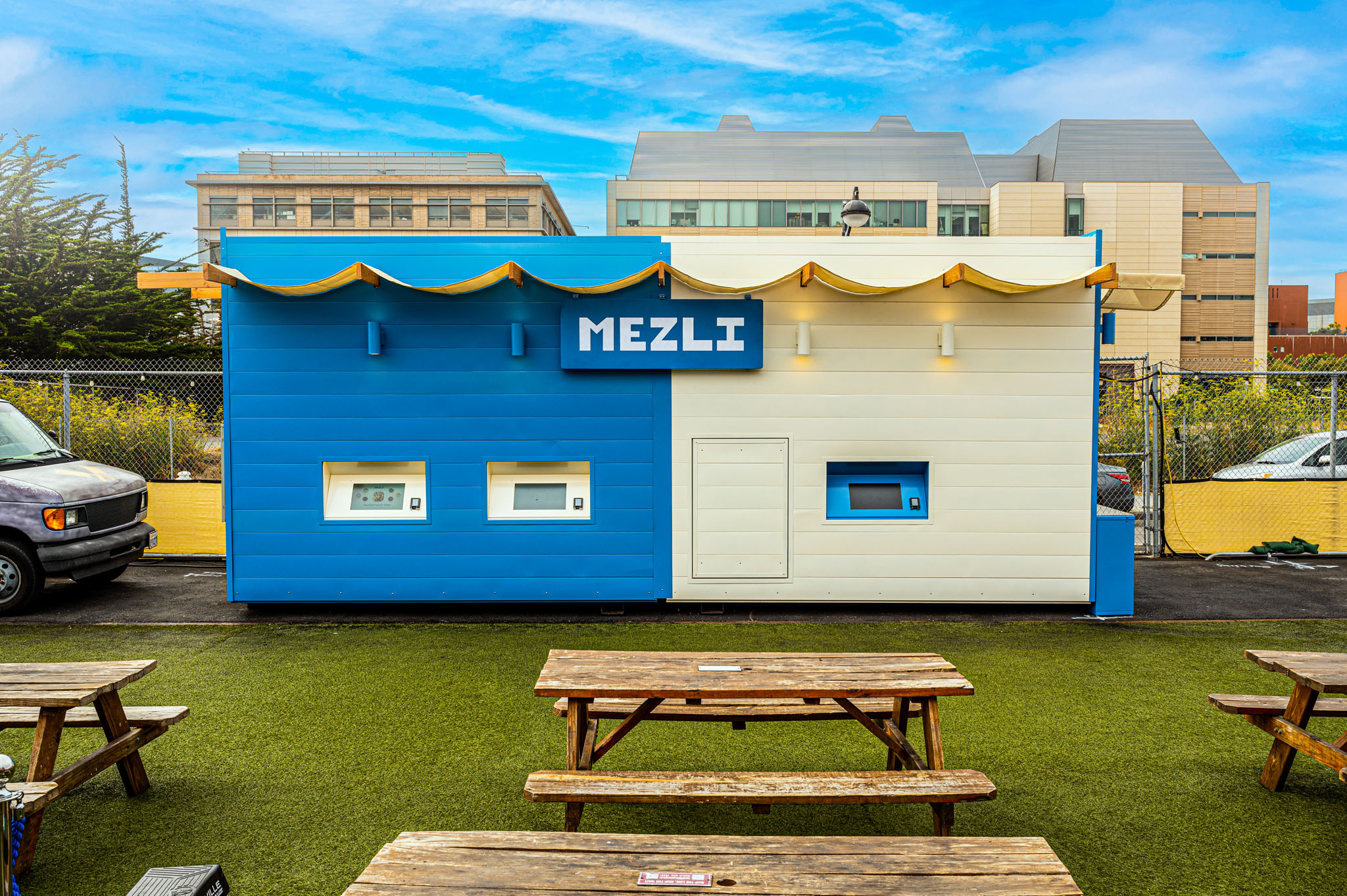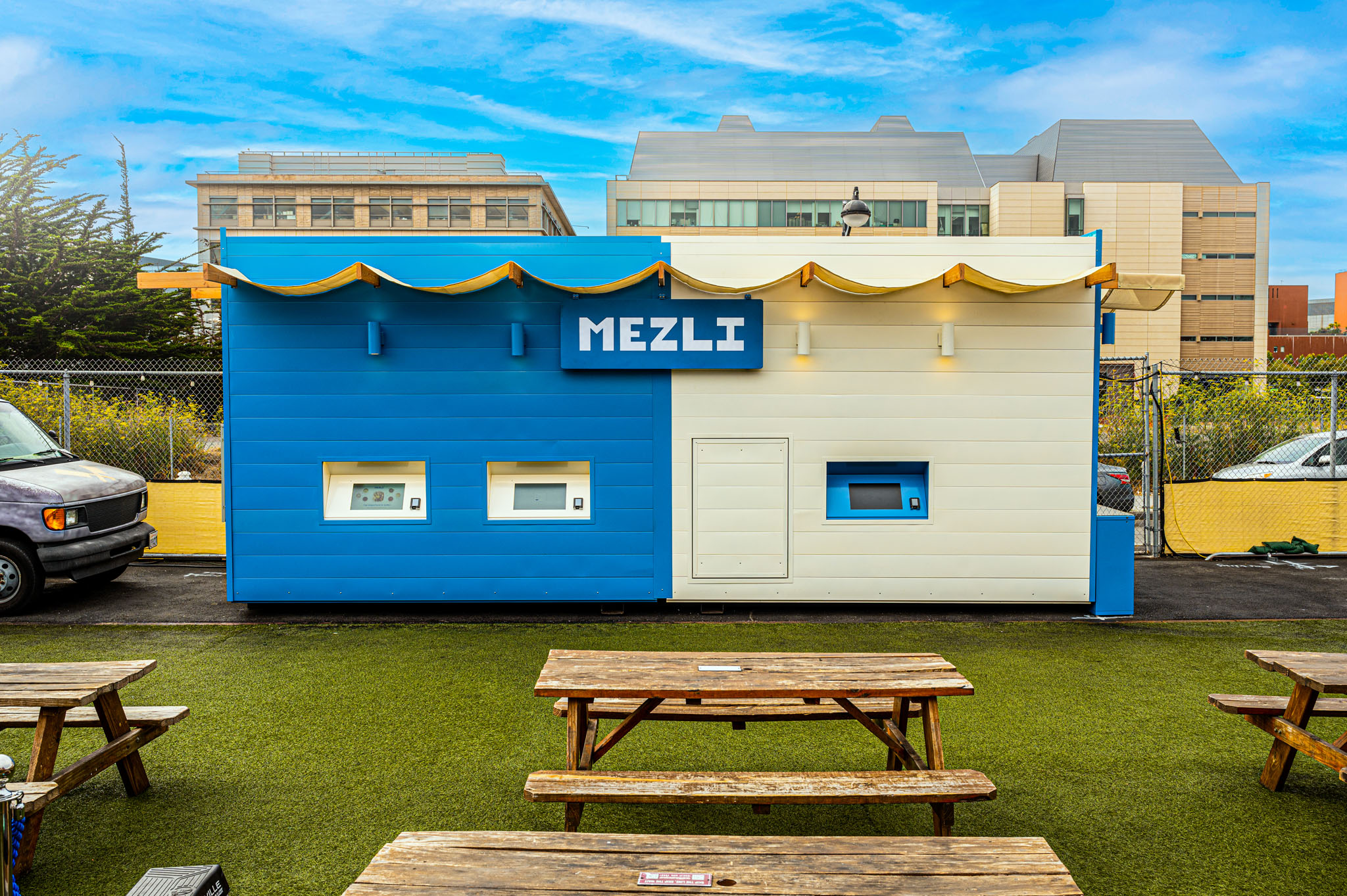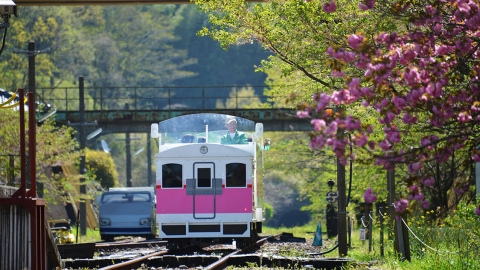Mezli isn't the first restaurant in the San Francisco area to incorporate automation systems. However, its founders say it's the first to completely eliminate human involvement from its operations, from taking orders to receiving your food.
Mezli is scheduled to officially open on August 28th at the Spark Social food court, located at 601 Mission Bat Boulevard North, San Francisco.
Mezli began like many other famous startup stories. Three recent college graduates sought a solution to a problem they all faced: a lack of nutritious and healthy dinner options that wouldn't break the bank, especially in one of America's most expensive neighborhoods. They had neither the time to prepare a healthy meal for themselves nor the money to pay someone else to do it for them.
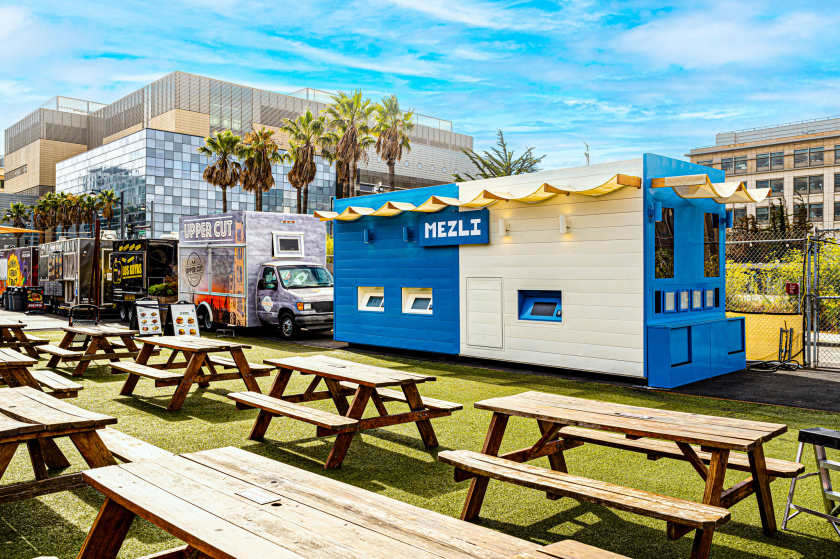
Mezli will officially open on August 28th at the Spark Social food court, located at 601 Mission Bat Boulevard North, San Francisco.
So, three young engineers—a software and AI expert, an automation expert, and an aerospace engineer—came together to devise a solution for clean, healthy, and affordable food. Their solution even opens up new possibilities for the future of the food industry. Two years after they first conceived the idea and spent several million dollars on research and development funded by investment funds, the dream of engineers Alex Kolchinski, Alex Gruebele, and Max Perham is just days away from officially launching.
Mezli is not a restaurant in the traditional sense, meaning there are no tables and chairs to sit at while waiting for a waiter to bring you a menu. Instead, a touchscreen and a card slot are what greet diners.
The automated food preparation system inside Mezli is incredibly fast, processing about 75 meals per hour, meaning a meal is ready and delivered to customers every 48 seconds—less than a minute. Mezli's food prices are also lower than the average in San Francisco, with the cheapest item costing $6.99.
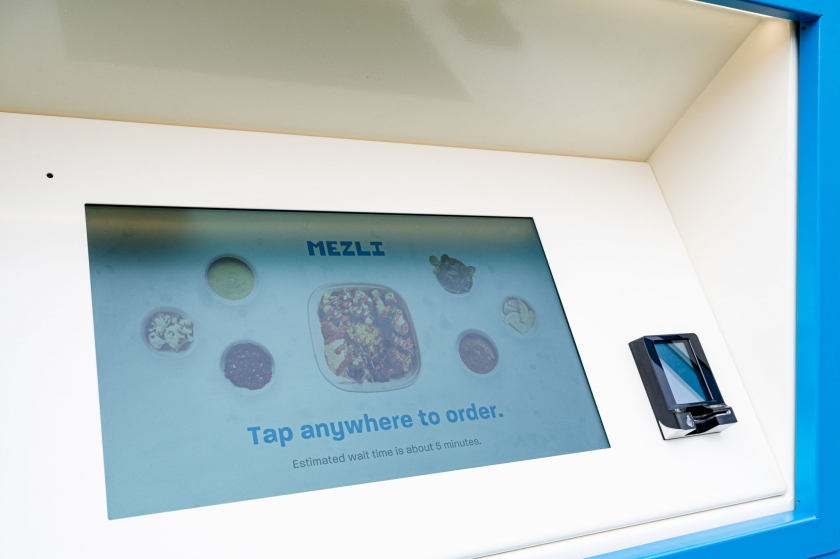
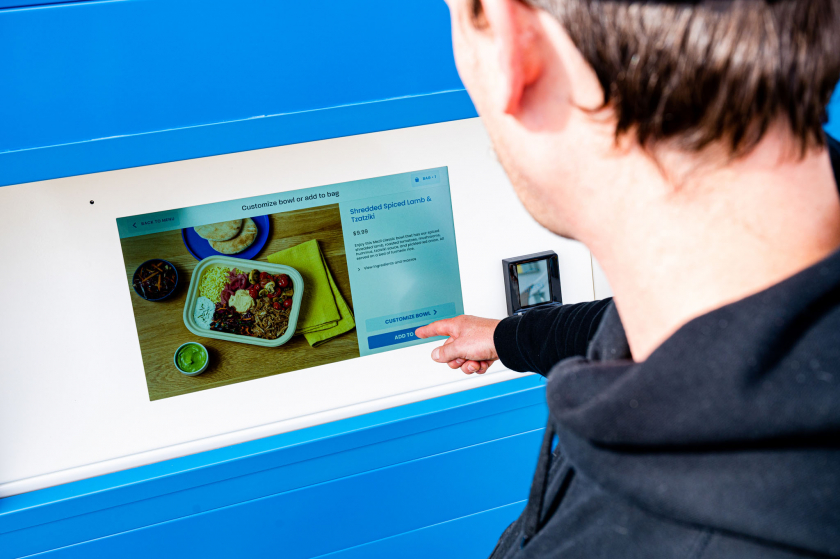
This restaurant can't be considered in the traditional sense, meaning there are no tables and chairs to sit at while waiting for a waiter to bring the menu. Instead, a touchscreen menu selection screen and a card slot will greet diners.
The co-founders created what is essentially a large, refrigerated transport container that holds the ingredients, places them in bowls, heats the food, and then delivers it to where customers can pick it up. But from a technical standpoint, the co-founders say it's quite challenging to solve. Most other "automated" restaurants require human presence, such as waiters taking orders while robots cook, or vice versa. But Mezli can operate autonomously, serving hundreds of meals without any staff.
Of course, elsewhere, the presence of a human chef is still needed to prepare raw food. That's the job of chef Eric Minnich, who previously worked at the Michelin-starred Madera restaurant at the Rosewood Sand Hill Hotel, and the Commissary restaurant opened by American chef Traci Des Jardin. He and two others prepare the food daily, including pre-cooking and portioning. Once a day, Minnich and his colleagues bring this batch of ingredients to the automated restaurant.
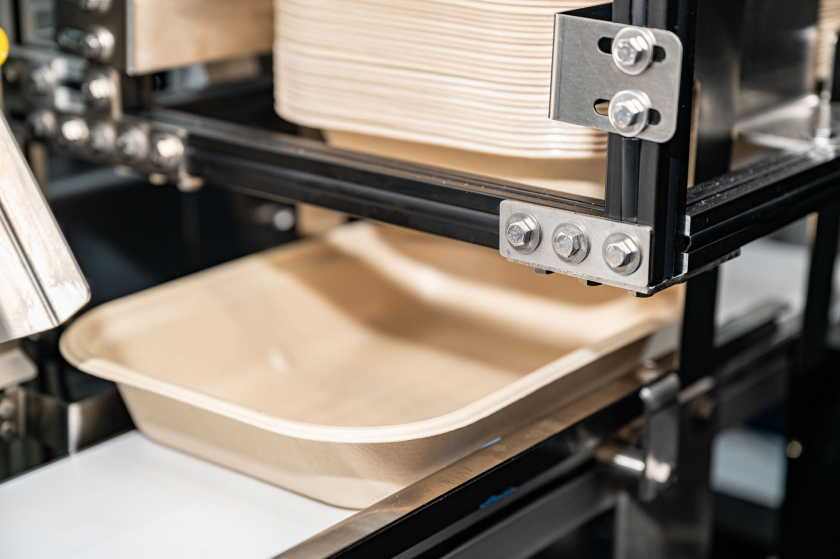
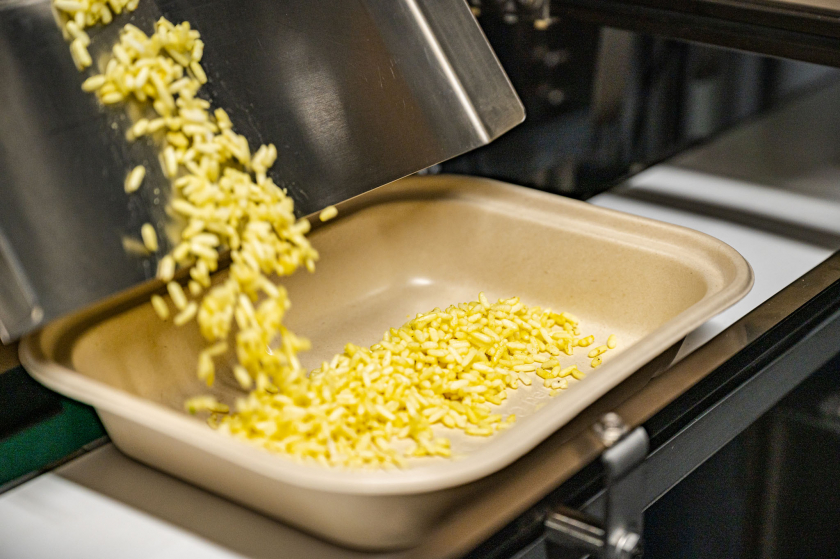
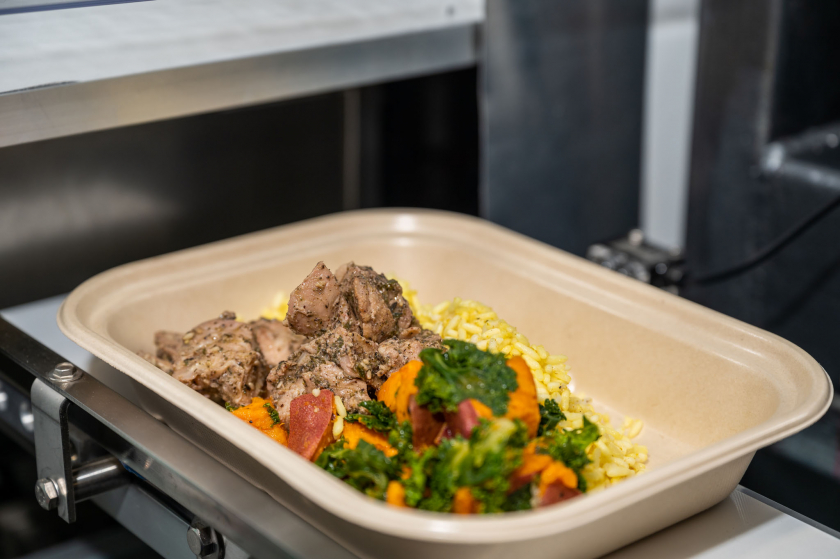
Costs are minimized because there are fewer than 5 people serving the entire restaurant, allowing Mezli to serve hundreds of people daily at a lower-than-average price per meal.
Mezli's menu is based on Mediterranean cuisine, but with the "selling point" being a true tech-savvy restaurant. Diners can choose from several visually appealing dishes: Yogurt-grilled chicken za'atar served with turmeric rice, roasted cauliflower served with red rice and sweet potatoes, minced lamb tzatziki served with grilled mushrooms and tomatoes, or chickpea patties served with salad. There's also the option to create your own dinner from the available options.
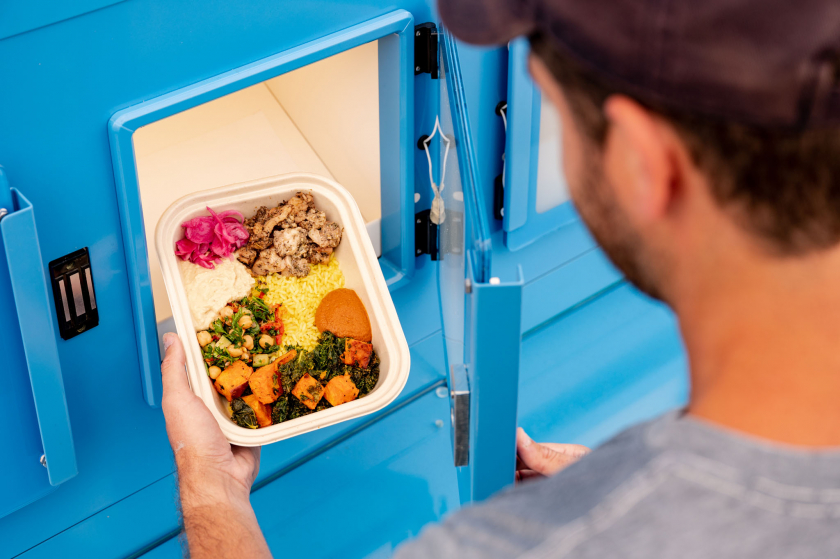
Mezli's food prices are also lower than the average in San Francisco, with the cheapest item costing $6.99.
Thanks to its customization capabilities, Mezli can be instantly transformed into a Thai or Indian restaurant with just a software update.
Kolchinski acknowledges that Mezli may not be the future of the food industry, and there are still limitations to a model without human interaction in restaurants. But he and his co-founders say their technology meets the demands for speed, convenience, affordability, and healthiness in a way that traditional restaurants cannot.
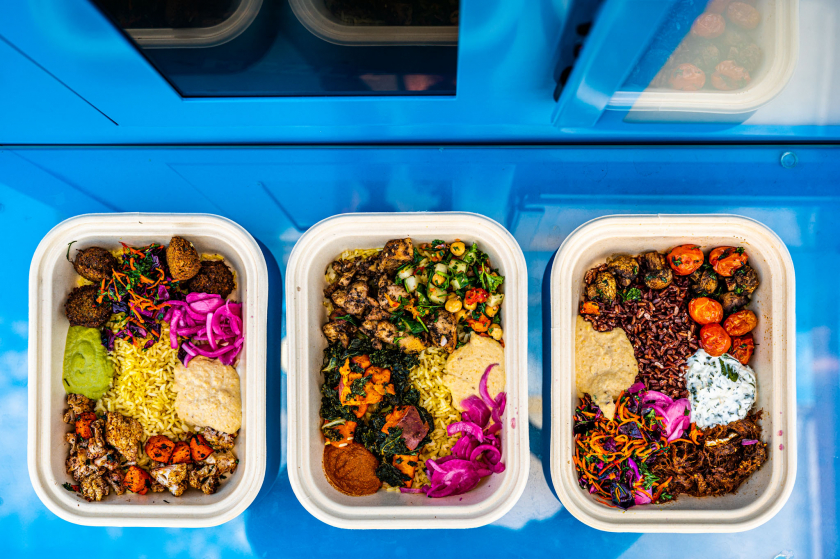
Mezli can serve hundreds of people daily at a price per meal that is below average.
The Mezli boxes, powered by electricity and requiring no hooks, hoods, or even canopies, can be placed anywhere. Furthermore, they can be built much cheaper than traditional restaurant construction, although Kolchinski declined to share the exact cost of producing the first boxes.

 VI
VI EN
EN



